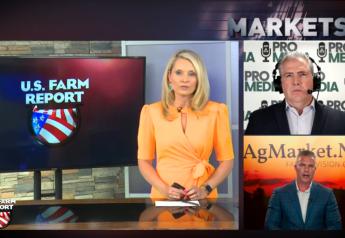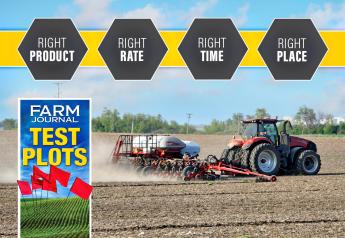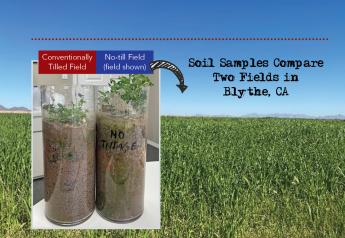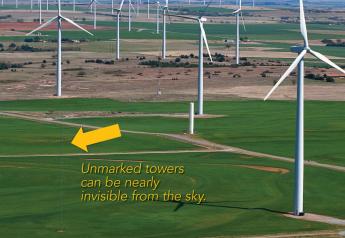Jean Payne Retires from IFCA After 23 Years

Before she retires at the end of March, Jean Payne graciously joined our podcast to recap her memories and milestones during her 23 years at Illinois Fertilizer and Chemical Association.
Here’s some of what she shared, and you can catch all of her insights in the full episode below.
As Payne explains, she didn’t grow up on a farm, so what were her first impressions of industry?
"The number one reason I took this job was because I always felt that the ag retailers out there, wanting to do things right. And integrity was very important to them as an industry. They also understood that without the public trust, and how we use pesticides and fertilizers, we would be walking on thin ice, all the time. So I knew that they always wanted to do the right thing, they just needed some work at the leadership level of their statewide association to continue to tell them what was on the horizon.
It hasn't always been easy and some of these issues are really challenging, but the retailers in their heart of hearts always want to do the right thing, and they stand behind their business and their name. They want the credibility and they deserve the credibility and so that was the thing that has held true for this organization for the entire time I've been here and I'm sure will continue into the future."
She says there are at least five major accomplishments that are highlights for her:
1. Hours of Service exemption
"Having restrictions on driving time did not work for our industry but we had to make a very strong case at the federal level, and then at the state level to get these exemptions in place for fertilizer, chemicals, and seed, so that during the spring and the fall and the guys that are out there driving these trucks, whether it's a semi or an ammonia tanker or pickup truck to the farm with seeds the back of it, that we could do our job, even if it involves a 12 or 14 or 16 hour day. But we also had to make a case that we could do it safely, and that's where I come back to the credibility and the integrity.
We know we have to work long hours, so we can make an exception because we've had a tremendous safety record. Think about all those ammonia tankers going down the highway in a state like Illinois. I'm so proud these guys can drive beyond normal working hours because of the hours of service exemption that we get we are able to get these products to the farm, when they need to be on the farm. And I realize most people have no clue that that goes on a daily basis, but to me it was something I was passionate about getting that exemption in place for our members and working with the state police on it. And if we made it happen and people don't think of that anymore they may be taken for granted but I would just challenge people to remember. We have to stay safe on the highways or we could lose it . All those years it took to get this in place could be lost if we have a tragic accident. So safety first."
2. License Plates on Fertilizer Wagons and Floaters
"This was in place before I came into this job and I started asking around after a while. Interestingly enough, I was in a meeting with some Illinois State Police officers and I asked them, I said, Why do we have to have license plates on our nurse wagons? Because I was under the impression that maybe they thought it was important, and they looked at me and they said “I don't know you tell us.” SO we had one of those “a ha” moments that we thought well maybe there's really no good reason for this.
So we just sat down with the Secretary of State, the state police and said we really need to do this and I would remind everybody that you know those licensees went into the coffers of the state of Illinois. And so they were willing to work with IFCA to even to eliminate a program that was providing revenue to the state of Illinois. So, I think that was a huge accomplishment for us and anytime we can make the administrative duties of the regional offices, not just the guys that are applying fertilizer but the staff in the office that has to fill out those registration forms and get all those stickers back and write the check to the Secretary of State, we were able to get rid of that regulatory burden for them and the state police work with us, and the Secretary of State worked with us in that combination of having those relationships that made this all possible."
3. Ammonia theft
"This was the first thing I worked on when I was hired in the late 90s. We had retailers getting ammonia stolen from them on a nightly basis, and it was pretty scary some of the damage that was being done to the hoses and the tanks and having people trespass on the property of the ag retailers. And ammonia is a product we are so careful with, and then it's so abused in the drug trade which was really a black eye on our industry. So we tried some of the common sense things like making the penalties higher but honestly when it comes to the drug trade, it's hard to deter to deter people just the penalty.
So really it was our relationship with Lisa Madigan who was the Attorney General at the time. The core production aspect of methamphetamine was unless you could buy all the Sudafed tablets. So we worked with her to put pseudoephedrine behind the counter at drug stores and you have to show driver's license.
So that was an interesting issue but again it was going to the table with partners and our industry and in this case the attorney general who helped us get this resolved."
4. Keep It 4R Crop Program and Nutrient Research & Education Council
"Well in early 2000 everybody was talking about, “Let's have a big tax on fertilizer because then farmers will use less fertilizer because it'll be so expensive and water quality issues phosphates in our water anymore.” And that was the going consensus among many people outside of agriculture as a way to solve nutrients and water.
We knew of course that was not going to be the solution and certainly not good for agriculture. So, in a way the biggest thing that we accomplished with our program was not just implementing good science about right source, right rate, right, right place. But actually going to the people that were the most critical of our industry, which were some of the environmental groups and sitting down with them and explaining how and why we use a dynamic system out in nature.
So we invited them to be part of the Nutrient Research and Education Council that IFCA led the charge to create. They agreed to participate with us and ever since we've all sat around a table over 10 years now.
I would challenge anybody to look at Illinois and wonder why we don't have any orders regulation or litigation on fertilizer use, it's because we develop the partnership.
It's easy to live in your own bubble. But You can never really get through some of these really difficult issues, especially whenever involves a perception of your industry that may or may not be true.
There's a lot of work to do, and I don't want anybody to think that pressure still aren’t out there because they are, but at least we have the research base in Illinois and have established relationships with the environmental groups.
Sometimes it's difficult to have these conversations but just be honest and be transparent, because I have found that when you give people the benefit of the doubt and you're honest about what you're doing and trying to do they will give you the benefit of the doubt too. And that's how you overcome some of these societal issues that kind of end up with agriculture being in the crosshairs."
5. Training & Safety
"Illinois is difficult and our legislative system can be quite challenging. We are in terrible financial shape. And so to keep your head above water there and not have anything willfully detrimental happen to the ag industry because of sort of the other dynamics going on in our in our state government has really been a challenge.
We have had to be extremely proactive. We can't always go in and just thump our chests and say we are agriculture listen to us. We have a whole diverse group of people that we have to work with in Illinois. And like I said, I'm most proud of the fact that I think we have a reputation for being proactive for always coming with a solution, not a complaint. We’re known for finding ways that will work by bridging the gaps and then following through on what we promised to do. That's what I'm most proud of, and I'm most proud that the IFC Board of Directors always allowed us as a staff to have the visionary ideas, and to implement them. It's a lot of work behind the scenes and some of it isn’t very exciting at times, but if you're willing to listen that's the key. And there's no secret. There's no secret to any of that."
What did you learn most from dicamba?
"If I leave anything that causes me a little bit of concern, it would be that issue, because I still don't think we have found the right recipe for coexistence.
I think it's much better and certainly will be with the new technologies out there this year, but I really challenge everybody to keep in mind that there is a lot of scrutiny on pesticide use right now. Even though I know we're a huge corn and soybean state, there's still a lot of diversity out there and so anything we can do to remember that spraying pesticides is not our right, it really is a privilege like driving. Therefore you have to be aware of everything that's going on around you and I know how hard it is.
It really has to be a partnership of everybody doing their utmost best because if we cannot succeed in this, then I think there's some troubling times ahead on pesticide use and stewardship.
For us whether it's fertilizer or transportation or safety being good stewards is truly the key, and so if your ag retailer tells you today it's not a good day to spray, you really need to listen. That ag retailer knows what's at stake, and I know the farmers do too, but when your retailer gives you advice on the proper use of something or the best day to spray or the day that you shouldn't be spraying, I would just really encourage people to listen and to take it to heart because there is a much bigger picture out there. For the future of crop protection technologies we have to prove to the public, and to ourselves, that we can succeed with that challenge is going to be ongoing."







